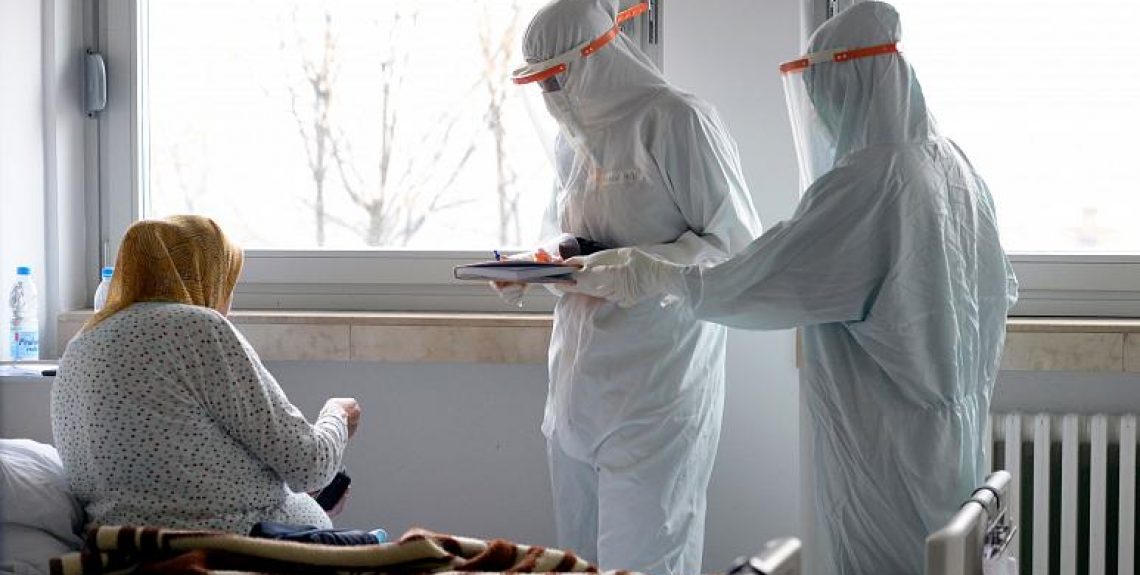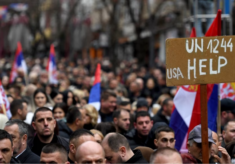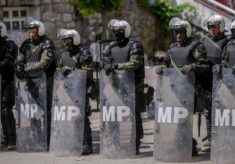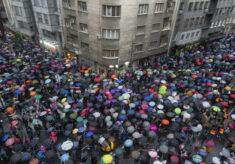Due to a chronic lack of resources, accessing to Covid-19 vaccines is not an easy game for the Western Balkans. To immunize people, the countries of the region mostly opted for relying on COVAX, a global initiative set up by the EU, the WHO and France to distribute in developing countries vaccines made by European manufacturers.
Under COVAX scheme, doses of the Pfizer-BioNTech vaccines have been shipped to Serbia and Albania, however just in a symbolic amount, while other countries in the region have not yet received the first batch. It is already clear that Albania, Bosnia, Kosovo, Montenegro, North Macedonia and Serbia — home to some 20 million people — will lag far behind the EU’s 27 nations and Britain in efforts to reach herd immunity by quickly vaccinating a large number of their people.
The scarcity of doses has sparked frustration across the region. Politicians point their finger at the EU. The Albanian Prime Minister, Edi Rama, blamed Brussels for lacking solidarity, saying that its approach to health crisis in the Western Balkans is “morally and politically unacceptable”, implying that the EU has forgotten the region.
However, a note by the EU Commission remarked that 3,3 billion Euro have been mobilized so far to address the health emergency and mitigate the socio-economic impact of the pandemic in the Western Balkans. Moreover, the EU Commission launched in December a loan package, worth 70 million Euro, tailored to speed up vaccinations in the Western Balkans. Yet, the pace is still inadequate.
The vaccine issue is a mirror reflecting the complicated relationship between the UE and its South-eastern neighbours. Brussels is by far the first donor, the first lender and the first trading partner for the region, but the enlargement fatigue, still present across the union, prevents it to upgrade the Europeanization process in the Western Balkans, which also mean relieving the region’s undeveloped economies. For their part, the post-Yugoslav and Albanian political elites criticise in turn the EU’s lack of solidarity (sometimes a legitimate argument), to divert attention from their failures to increase up democratic standards, that are clearly worsening. The Western Balkans’s efforts to contain the pandemic, for example, is very questionable. During the second-wave pandemic, restrictive measures have been too soft, prompting a surge of infections and deaths. In November, Kosovo was the country with the highest death rate in the world, according to the Johns Hopkins University.
The Western Balkans have realized that the vaccines shortage will not be filled up soon, thus they look for bilateral agreements with manufacturers, not only European ones. Serbia bought doses of Sinopharm and Sputnik V, the Chinese and the Russian vaccines, less effective but cheaper compared to those produced by Western companies. Bosnia Herzegovina, Montenegro and North Macedonia are also due to start negotiations with the two non-EU producers. Belgrade’s authorities also plan to set up centres to produce the Russian vaccine. Generium, the producer of the vaccine, has confirmed its readiness to transfer technology to Serbia.
With the European enlargement stagnating, China and Russia see vaccines as an opportunity to expand influence in the region and achieve strategic goals. For the Asian superpower, the Western Balkans are a fundamental section of the Belt and Road Initiative, one of the most ambitious geopolitical projects in recent years. As for the Kremlin, the basic objective is watering down the Euro-Atlantic integration in the region. Both China and Russia count on vaccines to strengthen their mix of resources to penetrate the region’s porosity. A response from the EU is expected.

















